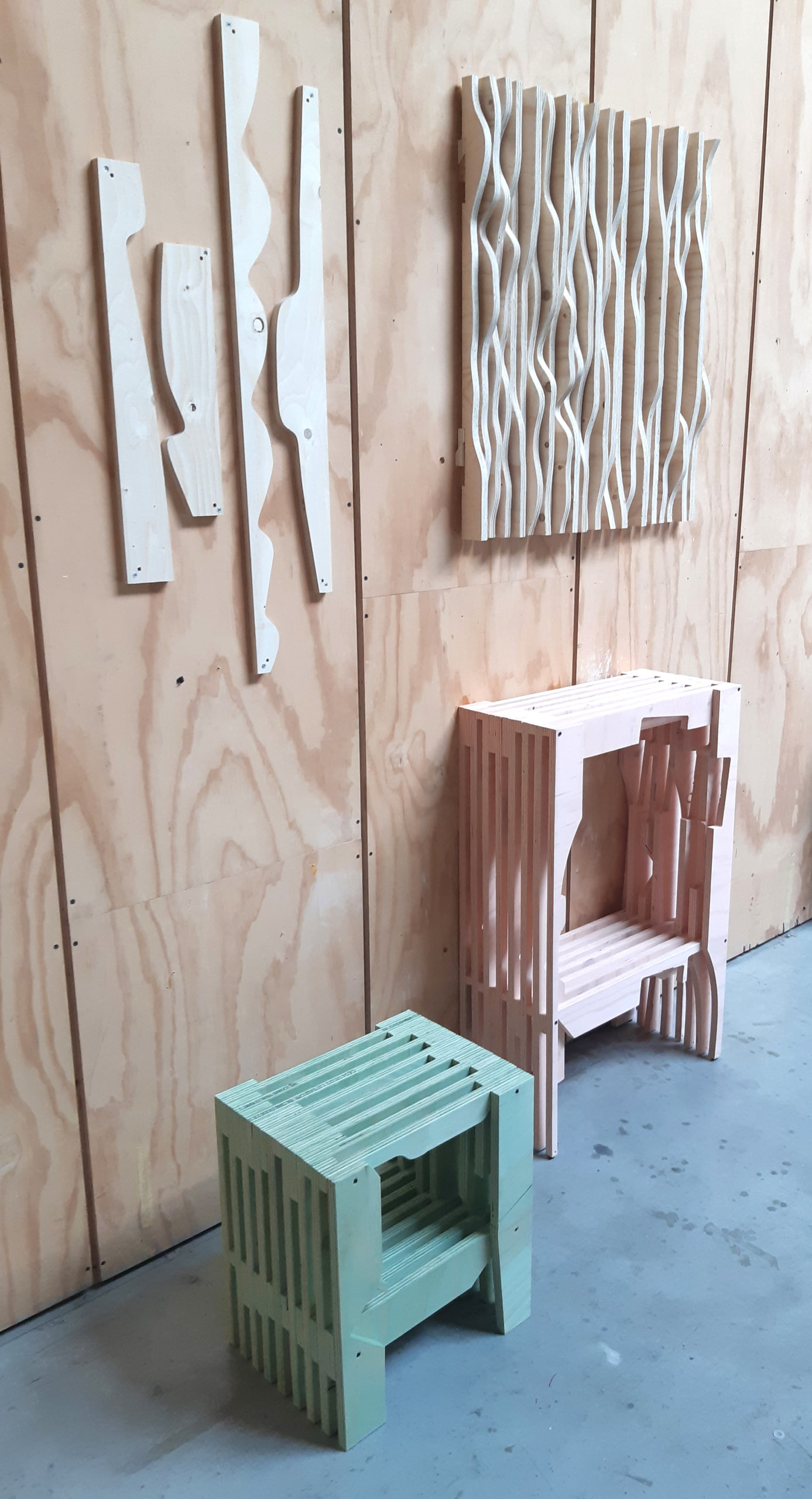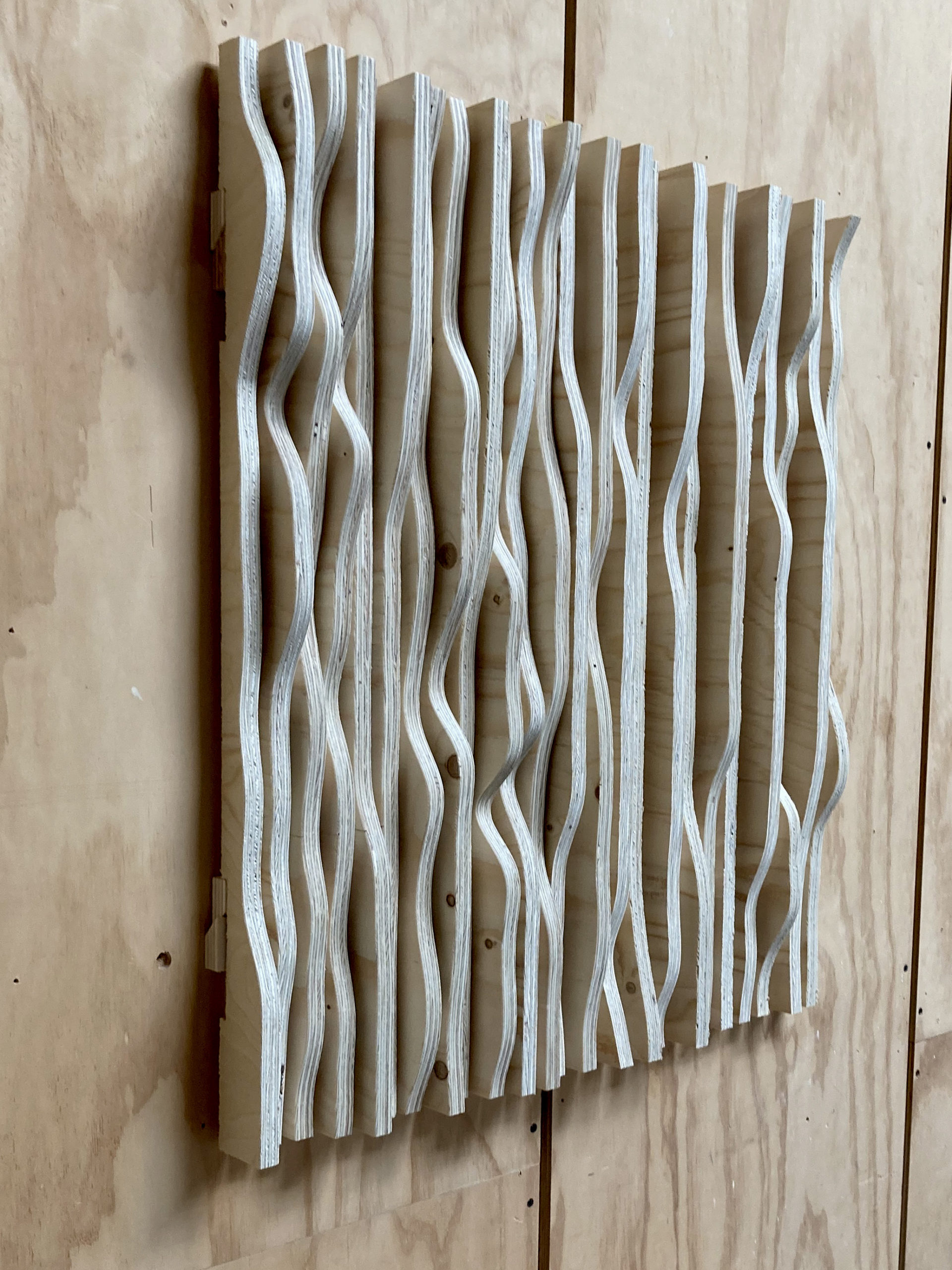Found Objects

Useful information
- Team members
- Jesse Howard Marije Remigius Vincent Mesker Alexandre Dubor Vincent Huygue Ardeshir Talei
- Country
- Netherlands
- Keywords
- Open source waste wood design collaboration art software engineering playing furniture interior CNC parametric
Short Description
Dynamically generating new objects based on the left-over material from CNC production.
Detailed Description
With Found Objects, we aim to reduce this waste using software that can
recognize and create functional components from left-over sheet-material
before production begins. We have now designed interior elements based on
this process, but see most potential in opening the process to others: inviting
more production-facilities to use the process and open collaborations with
artists / designers developing new possibilities and outcomes.
Found Objects is a collaboration between Fiction Factory, Jesse Howard, and
IAAC. This project has received funding from the European Union’s Horizon
2020 research and innovation programme under grant agreement 951813.
Project Details
- Does your design take social and cultural challenges and human wellbeing into consideration?
The central aim of the project is to reduce the amount of material that ends
up as waste. Here in the Netherlands, the CNC waste is classified as B-Grade,
which means it will be burned for energy production, releasing additional CO2
into the atmosphere. In this sense, developing long-lasting products from the
leftover material is a step toward bettering the environment for all.
- Does your design support sustainable production, embodying circular or regenerative design practices?
Fiction Factory is a company based in Amsterdam which produces custom
made B2B interiors from a diverse range of materials. For the past three years,
Fiction Factory has focused on production with circular engineering principles.
However, even with these principles in place, the production they execute also
creates a lot of waste. At Fiction Factory 78% of this waste is wood, and most
of this wood waste is created by digital production on their CNC machines. This
project takes this as a central challenge - further reducing wood waste is a
fundamental step in continuing to develop a circular production process.
- Does your design use principles of distribution and open source?
In a continued quest to reduce waste and use more of each sheet of material,
Fiction Factory collaborated with IAAC and Jesse Howard to create new open
source software solutions. By anticipating that each sheet of material will
contain leftover space, we developed tools that allow new usable components
to be automatically generated from this space.
This tool is based on the CAD software Rhinoceros and Grasshopper. Though
these are commercial proprietary software packages, they are also very widely
used. By developing open-source scripts and plugins for the software, we hope
to create more possibilities for applying the solutions on many more CNC
machines all around the world. Our hope is that the process of ‘“finding”components based on leftover material can happen on a distributed scale, and
that new objects will arise based on specific local conditions.
Fiction Factory is a company based in Amsterdam which produces custom
made B2B interiors from a diverse range of materials. For the past three years,
Fiction Factory has focused on production with circular engineering principles.
However, even with these principles in place, the production they execute also
creates a lot of waste. At Fiction Factory 78% of this waste is wood, and most
of this wood waste is created by digital production on their CNC machines.Like many other production facilities, the use of CNC routers at Fiction Factory
allows for the production of highly custom interiors with fast turnaround times.
However, because the types of projects and engineered parts are constantly
changing, it is not possible to fully optimize the material use. In general, an
average of 30% of sheet material processed by CNC ends up as waste. For
Fiction Factory, this means that they throw away an equivalent of 2000 sheets
of new material every year
Images



Video
Project Website
Social Media Accounts
www.fictionfactory.nl